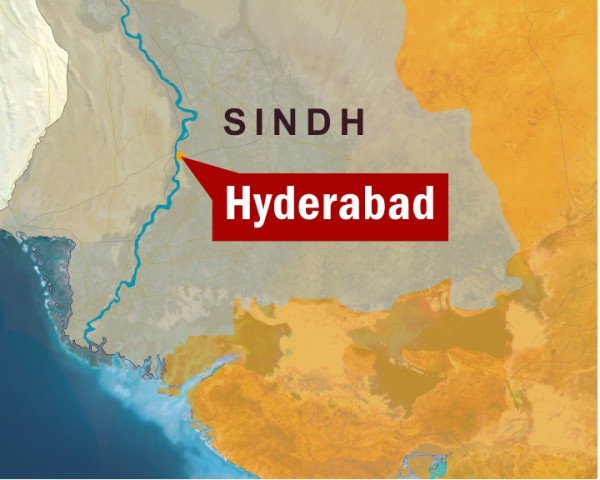Taj Hyder talks: ‘Sindh govt didn’t know about changes in delimitation of maps’
The secrecy surrounding the use of revised boundaries was maintained under an act.

Taj Hyder talks: ‘Sindh govt didn’t know about changes in delimitation of maps’
The Sindh government was kept in the dark on the changes made in the delimitation of maps that are used to mark the blocks, circles and charges for the house and population census, said Pakistan Peoples Party (PPP) Sindh general secretary Taj Hyder.
Hyder, who is also the supervisor of the party’s census monitoring committee, was talking to the media on Friday after holding a consultative session on the 18th Amendment Implementation Commission with representatives of civil society. The revised delimitation was carried out in 2007, five years after the last proclaimed exercise done in 2002.
“The chief minister, the chief secretary and even I did not know that the boundaries of blocks, circles and charges were changed in 2007. We believed that the census is being done according to the 2002 marking of limits.”
However, Hyder clarified that the secrecy about using the revised boundaries was maintained under a constitutional act. “The centre and the federal census commission have the constitutional right to do this,” he said.
According to him, the Sindh government has raised this issue with the centre and they are also seeking a constitutional amendment in the secrecy act. “This issue, along with other complaints, have been taken to the Council of Common Interests.”
Earlier, at the consultative session on the 18th constitutional amendment, Hyder observed that the perception that the provinces are unable to handle the devolved subjects will eventually harm the autonomy of the federating units. Although 10 federal ministries and nine selected functions of six federal ministries were devolved to the provinces, Sindh received only Rs6 billion under the 7th NFC Award by December 2010. “Our estimate was Rs25 billion.”
Observing that financial autonomy was the essence of provincial autonomy, the PPP leader categorically said that even after devolution, the 7th NFC Award and the abolition of the Concurrent list, Sindh was not getting its due share. He said that he would brief members of Sindh Assembly on this soon. Several important subjects, including duties on the succession of property, estate tax on property, state lotteries, capital gains and general sales tax on services, have been completely devolved to Sindh. Additionally, functions such as management of ports, census, national planning and economic coordination have been declared a shared responsibility of the centre and provinces, he added.
Meanwhile, social activist Jami Chandio, representing civil society, said that provincial autonomy will remain a chimera for the provinces if this government failed to accomplish the task. “The sitting government — which came to power on the basis of these issues — will have to see through their implementation, if the dream of autonomy has to be achieved.”
Another political leader, Jam Saqi, also agreed and said that the country’s establishment has been ‘cheating’ the people about freedom and autonomy since Independence. “It’s the obsession with centralisation which led to the dismemberment of Pakistan in 1971 but the fetish with power doesn’t seem to have died away.”
Published in The Express Tribune, May 7th, 2011.


















COMMENTS
Comments are moderated and generally will be posted if they are on-topic and not abusive.
For more information, please see our Comments FAQ